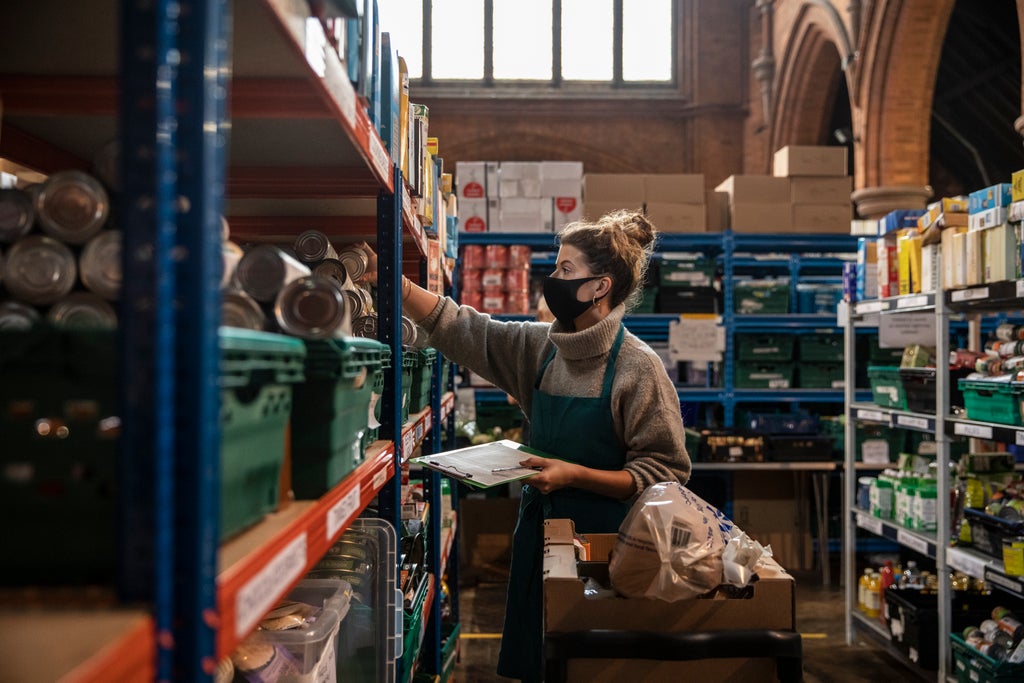
One in seven adults lives in homes where people have skipped meals, eaten smaller portions or gone hungry all day because they could not afford or access food, new research suggests.
The research, conducted by the Food Foundation, found that the number of people struggling had risen by 57 per cent in three months. The charity analysed responses from 10,674 UK adults who were surveyed by YouGov between April 22 and 29.
Almost 14 per cent said they or a member of their household had either eaten smaller meals than usual or skipped meals, not eaten despite being hungry, or not eaten for a full day because they could not afford or get access to food in the past month.
The results also suggest that around 7.3 million adults live in households affected by food insecurity, including 2.6 million children. This is an increase from 4.7 million adults (8.8 per cent of respondents) surveyed in January.
Half of households on Universal Credit have also experienced levels of food insecurity in the past six months.
People in households where someone has a disability, households with children and non-white ethnic groups have faced a higher risk of food insecurity.
The number of families with children experiencing food insecurity in the past month has also risen from 12.1 per cent in January to 17.2 per cent in April.
The Food Foundation is concerned that people will become more reliant on lower-cost foods which tend to be “calorie-dense and nutrient-poor”, increasing health risks and obesity levels.
Anna Taylor, executive director of the Food Foundation, said the “extremely rapid rise” could be catastrophic for families.
She added: “The situation is rapidly turning from an economic crisis to a health crisis. Food banks cannot possibly be expected to solve this.
“The government needs to realise the boat is sinking for many families and it needs to be fixed. Bailing out with emergency food parcels is not going to work.”
The charity has also revealed that food bank users are increasingly requesting items that do not need cooking as they are worried about how they will afford rising energy bills.
The charity’s figures come at a time when the rising cost of living is outstripping the amount by which benefits have risen, subsequently hitting the most vulnerable families the hardest.
The Food Foundation’s findings have prompted calls to the government to increase benefits in line with inflation and to expand access to free school meals and the Healthy Start programme.
Professor Sir Michael Marmot, director of the UCL Institute of Health Equity, added: “If one household in seven is food insecure, society is failing in a fundamental way.
“These figures on food insecurity are all the more chilling because the problem is solvable. But, far from being solved, it is getting worse.”
A government spokesman said: “We recognise the pressures on the cost of living and we are doing what we can to help, including spending £22 billion across the next financial year to support people with energy bills and cut fuel duty.
“For the hardest hit, we’re putting an average of £1,000 more per year into the pockets of working families on Universal Credit, have also boosted the minimum wage by more than £1,000 a year for full-time workers and our Household Support Fund is there to help with the cost of everyday essentials.”







